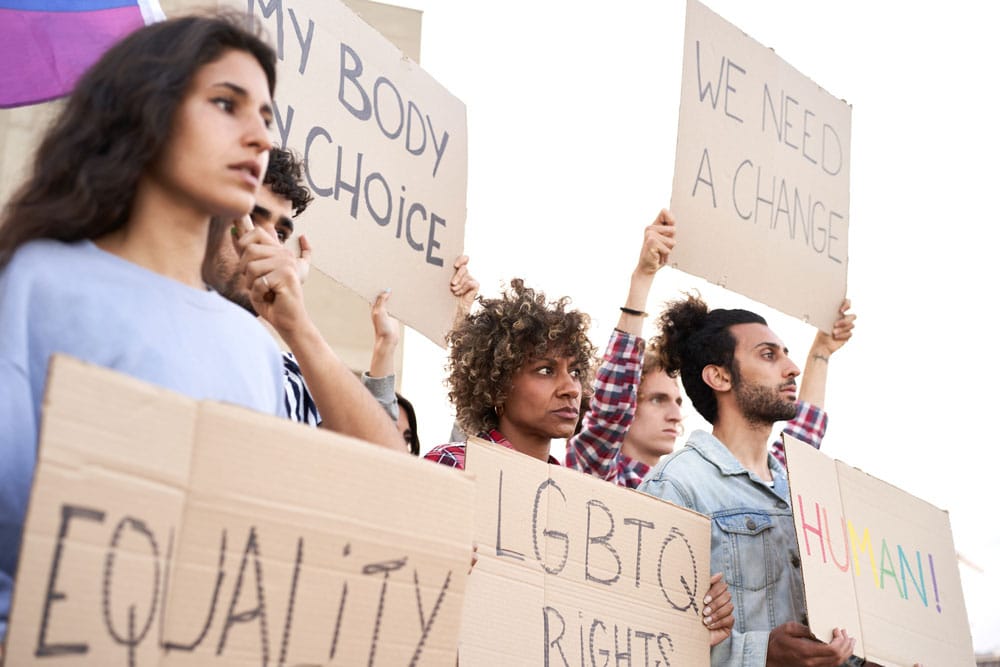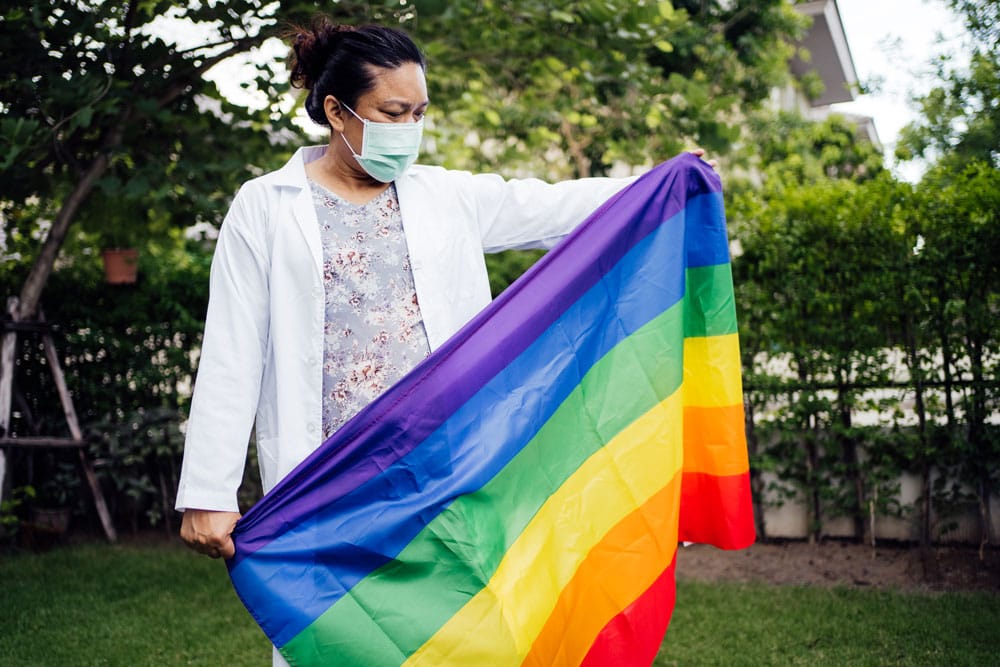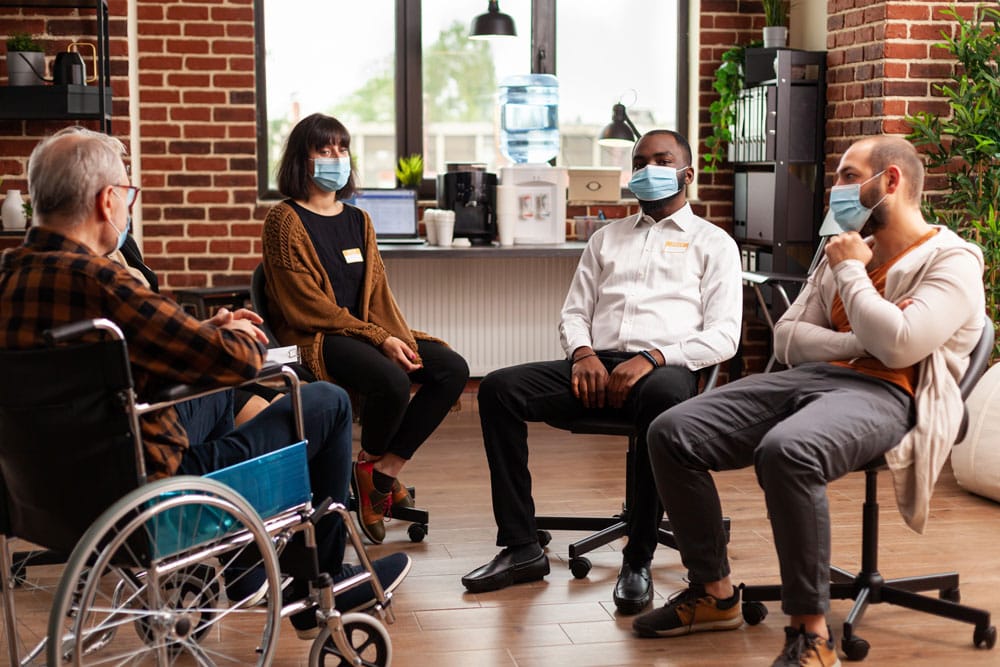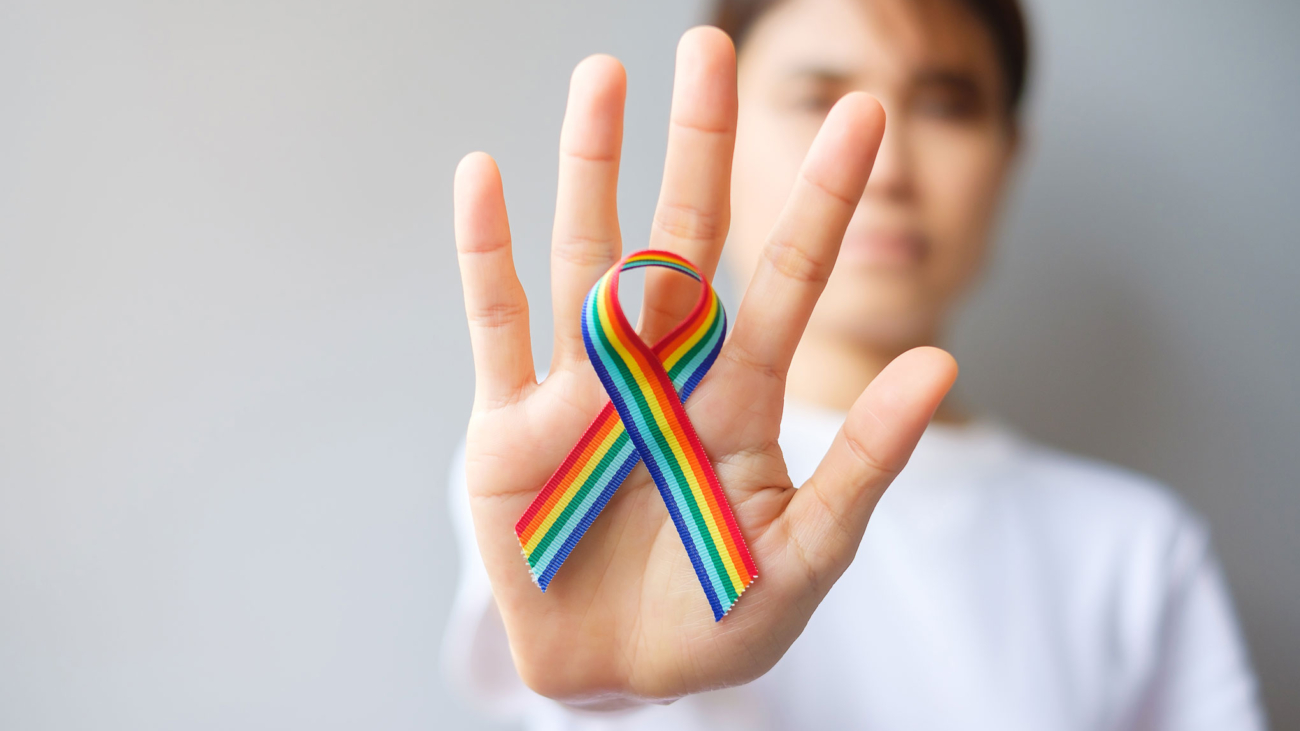Introduction: Setting the Stage for Inclusive Health
Many LGBTQ+, non-binary, and transgender individuals face challenges when seeking healthcare, particularly regarding sexual health. A visit to a clinic can be fraught with uncertainty, intake forms may not accommodate diverse gender identities, healthcare providers might lack specialized knowledge, and discussions about sexual health can feel awkward, dismissive, or even judgmental.
These hurdles create an environment where individuals may feel excluded, unseen, or hesitant to seek the care they need, leading to significant disparities in sexual health outcomes. The result is a cycle in which misinformation, limited access, and lack of representation further deepen these challenges.
Why Inclusive Sexual Health Matters
Sexual health is an integral component of overall well-being, encompassing both physical and mental health. It involves access to competent and inclusive healthcare providers who understand the nuances of gender identity, sexual orientation, and the specific concerns of LGBTQ+ individuals.
Comprehensive sexual health care is not just about treatment; it is about education, prevention, and empowerment. Feeling safe and respected in medical spaces fosters confidence, enables informed decision-making, and helps dismantle harmful societal stigmas.
When LGBTQ+ individuals are given the tools to prioritize their sexual health without fear of discrimination or inadequate care, they gain autonomy over their bodies, relationships, and personal health choices.
The Impact of Misinformation and Stigma
Unfortunately, misinformation and stigma surrounding LGBTQ+ sexual health continue to persist, reinforcing existing barriers to care. For example, some healthcare providers may assume that LGBTQ+ individuals do not need routine STI screenings or may lack understanding of how hormone therapy impacts sexual health.
These gaps in knowledge contribute to the isolation many feel when seeking care. Additionally, fear of discrimination, whether in the form of misgendering, invasive questions, or outright denial of services, can discourage LGBTQ+ individuals from visiting a doctor altogether. This avoidance can lead to undiagnosed conditions, untreated infections, and overall poorer health outcomes, underscoring the urgent need for more inclusive and affirming medical practices.
A Call to Action for Inclusive Healthcare
This article serves as both a guide and a call to action, aimed at providing clarity on the importance of sexual health for LGBTQ+ individuals, equipping people with tools to navigate healthcare barriers, and advocating for systemic change within medical institutions. Sexual health is a fundamental right, not a privilege reserved for the few.
Addressing these challenges is a necessary step toward ensuring that all individuals, regardless of their gender identity or sexual orientation, can access respectful, knowledgeable, and affirming healthcare without fear or hesitation. By fostering a culture of inclusion and education, society moves closer to creating a future where LGBTQ+ individuals receive the care they deserve, free from stigma and discrimination.
Systemic Barriers and Their Impact on LGBTQ+ Sexual Health

The healthcare system has historically been built on heteronormative standards, leading to significant challenges for LGBTQ+ individuals seeking sexual healthcare. This results in inadequate medical guidance, dismissive treatment, and a lack of affirming resources.
Many encounter intake forms that don’t recognize their identities and providers untrained in LGBTQ+-specific concerns, making medical environments feel unwelcoming. Consequently, individuals may be hesitant to seek care, leading to undiagnosed and untreated health issues.
A significant root of this problem is the lack of education among healthcare providers regarding LGBTQ+ health. This can lead to misinformation and discomfort when addressing the unique needs of non-binary and transgender individuals.
Fear of discrimination, including being mis-gendered or denied services, further discourages LGBTQ+ patients from seeking necessary medical assistance. This can delay or prevent critical sexual health screenings, STI prevention, and hormone-related healthcare, increasing health risks within the community.
Gaps in Research and Legal Obstacles
Limited research on LGBTQ+ sexual health is another major hurdle. Most medical studies focus on cisgender and heterosexual populations, creating a void in understanding specific concerns like hormone therapy effects, reproductive health options for transgender individuals, and tailored STI prevention methods.
This forces LGBTQ+ individuals to navigate their health concerns with little professional guidance, often relying on informal online forums or community support groups. The absence of specific data and expertise perpetuates misinformation and can leave individuals feeling isolated in their healthcare journey.
Furthermore, legal and institutional barriers restrict access to affirming sexual health care in certain regions. Discriminatory policies can exclude LGBTQ+ individuals from essential medical services, impacting not only physical health but also reinforcing societal stigma.
This combination of institutional neglect, insufficient medical training, and systemic biases contributes to significant health disparities, including higher rates of untreated infections, mental health struggles, and overall poorer health outcomes within the LGBTQ+ community.
Pathways to Inclusive and Affirming Care

To overcome these challenges, representation and education must be prioritized within medical institutions. Healthcare providers need comprehensive training on gender identity, sexual orientation, and LGBTQ+-specific health concerns to deliver informed and compassionate care.
Public health campaigns are crucial for dismantling stigmas and normalizing discussions about LGBTQ+ sexual health, promoting wellness and inclusivity for everyone, regardless of identity. Advocacy efforts are also vital to push for greater inclusion in medical research, ensuring LGBTQ+ individuals receive equitable medical attention and guidance.
Creating safe spaces for LGBTQ+ individuals within healthcare settings is paramount. Medical environments that affirm and respect patients’ identities foster trust and make individuals feel seen and valued.
Clinics with LGBTQ+-friendly policies, advocacy-driven medical organizations, and well-informed healthcare professionals are essential in building a future where sexual healthcare is accessible, competent, and affirming for all.
Breaking down these systemic barriers requires collective action, and as discussions around LGBTQ+ rights continue to evolve, there is hope for a more inclusive standard of care.
The Imperative of Inclusive Healthcare for LGBTQ+ Individuals
Finding an inclusive healthcare provider is a crucial step for LGBTQ+ individuals seeking medical care that is respectful, knowledgeable, and affirming. Far too often, LGBTQ+ patients encounter medical environments that lack understanding, empathy, or appropriate resources for their unique needs.
These challenges can lead to individuals delaying or avoiding necessary healthcare, putting them at risk for preventable conditions and undiagnosed issues. By connecting with providers committed to inclusive care, LGBTQ+ patients can take charge of their health and access the support they deserve.
Hallmarks of an LGBTQ+Affirming Provider
An LGBTQ+ affirming healthcare provider ensures that patients feel valued and respected by acknowledging their gender identity, sexual orientation, and medical concerns without judgment or assumptions. Key indicators of such a provider include the consistent use of correct pronouns and chosen names, both in conversation and on official documentation.
Intake forms should feature gender-neutral language and allow individuals to specify their gender identity beyond traditional binary options. Furthermore, inclusive providers use non-stigmatizing language when discussing sexual health topics, avoiding heteronormative assumptions about relationships and practices.
Beyond linguistic inclusivity, a truly affirming provider possesses experience with LGBTQ+-specific health issues, such as the use of pre-exposure prophylaxis (PrEP) for HIV prevention, hormone therapy management for transgender individuals, and sexual health screenings tailored to LGBTQ+ patients.
They understand concerns like the effects of hormone replacement therapy on sexual and reproductive health, safe sex practices across diverse identities, and the importance of mental health support in affirming care. If a provider lacks knowledge in these areas, a commitment to self-education and professional development is essential.
Strategies for Identifying Inclusive Providers and Their Impact

There are several effective methods for identifying healthcare providers who are inclusive. Researching clinics and hospitals online is a great start, as many LGBTQ+-friendly providers clearly state their non-discrimination policies on their websites.
Directories such as the Gay and Lesbian Medical Association (GLMA) and OutCare Health offer curated lists of LGBTQ+-friendly practitioners. Community recommendations are also highly valuable; LGBTQ+ centres, advocacy groups, and local organizations often have firsthand knowledge of inclusive clinics.
Speaking with friends or members of LGBTQ+ communities can provide trusted personal recommendations, helping patients find welcoming and understanding providers. Patient testimonials consistently highlight the profound positive impact of receiving affirming care, with many LGBTQ+ individuals reporting feelings of relief and empowerment upon finding a provider who respects their identity and truly listens.
These experiences underscore the vital importance of advocacy for greater inclusivity in the medical field, ensuring that all individuals, regardless of their gender identity or sexual orientation, can access competent and respectful healthcare.
Tailored Care for Transgender and Non-Binary Sexual Health
Sexual health is deeply personal, and for transgender and non-binary individuals, it requires specific and informed consideration to ensure comprehensive care. The healthcare system has historically operated under binary assumptions, often failing to provide adequate guidance or resources for those outside traditional gender norms. However, adopting inclusive healthcare approaches can bridge these gaps, offering respectful and affirming medical support.
Crucially, hormone therapy monitoring is a vital aspect of transgender and non-binary sexual health. Whether an individual is on testosterone or estrogen therapy, ongoing medical supervision is essential to manage potential side effects, maintain optimal hormone levels, and assess long-term health impacts. Hormone therapy can influence sexual function, libido, and reproductive health, making regular check-ups indispensable for balanced and effective treatment.
Specialized Considerations: Post-Surgical Care, Fertility, and Mental Wellness

Post-surgical care and screening guidelines are another key concern. Transgender individuals who’ve undergone gender-affirming surgeries, such as chest reconstruction (top surgery) or genital reconstruction (bottom surgery), need specialized follow-up care for healing, complication prevention, and maintaining sexual wellness.
Additionally, routine health screenings must be adapted based on surgical history. For instance, transgender women who’ve had vaginoplasty might require different recommendations for gynecological exams, while transgender men retaining internal reproductive organs may still need cervical cancer screenings. Healthcare providers must tailor medical check-ups to individual circumstances, rather than relying on universal assumptions based solely on gender identity.
Discussions about sexual function and fertility are also vital, yet often overlooked in traditional medical settings. Many transgender and non-binary individuals have concerns about how hormone therapy and surgeries might affect their ability to experience pleasure or conceive children.
Conversations about fertility preservation, assisted reproductive technologies, and alternative family-building methods should be readily available and stigma-free, empowering individuals to make informed choices about their future. Beyond physical well-being, mental health plays an integral role in sexual wellness.
LGBTQ+ individuals face higher rates of anxiety, depression, and trauma due to societal stigma, discrimination, and limited access to affirming care. These mental health challenges often intertwine with physical well-being, impacting libido, sexual confidence, and overall health outcomes. Access to LGBTQ+-competent mental health professionals is crucial for addressing issues like body dysphoria, relationship dynamics, and self-esteem related to sexual experiences.
Comprehensive STI Prevention and the Future of Inclusive Care
Tailored strategies for STI prevention and reproductive care are fundamental. Standard sexual health education often neglects LGBTQ+ perspectives, leaving individuals with limited information on safe sex practices that align with their identities and relationships.
Inclusive discussions around consent, pleasure, and protection should be framed to meet individuals where they are, not where assumptions place them. Healthcare providers should offer guidance on LGBTQ+-specific risk factors, including HIV prevention options like PrEP, safer sex strategies for same-sex partners, and reproductive health concerns unique to transgender and non-binary individuals.
Ultimately, comprehensive, inclusive sexual health care is about affirmation, respect, and knowledge. Moving beyond outdated, binary healthcare models is essential to ensure every person, regardless of their gender identity or expression, has access to the medical support they need.
By advocating for education, representation, and tailored care, society can create a future where sexual health is understood as a universal right, not a privilege reserved for a select few.
Navigating Stigma and Discrimination in LGBTQ+ Healthcare

LGBTQ+ individuals continue to face significant challenges in healthcare, largely due to deep-rooted stigma, bias, and systemic discrimination. These obstacles manifest in various ways, including misgendering in medical settings, judgmental attitudes from healthcare providers, or outright denial of care.
According to the National LGBT Health Education Centre, a concerning 56% of LGBTQ+ patients have experienced some form of discrimination in healthcare. This pervasive issue leads to mistrust and avoidance of medical services, with serious consequences of delayed diagnoses, untreated infections, and poorer overall health outcomes. When medical environments fail to offer affirming, respectful treatment, LGBTQ+ individuals may withdraw from the healthcare system entirely, further exacerbating existing health disparities.
One of the most effective ways to combat stigma is through education. Inclusive sex education is critical for ensuring LGBTQ+ individuals receive accurate and comprehensive information about their sexual health. Traditional sex education curricula often focus solely on heterosexual relationships, leaving LGBTQ+ individuals uninformed about safe sex practices.
STI prevention strategies and reproductive health concerns specific to their identities. Updating these curricula to include LGBTQ+-specific information fosters awareness and helps individuals make informed health decisions. Furthermore, healthcare professionals must receive training that prepares them to provide competent and affirming care.
A study published in the Journal of the American Medical Association (JAMA) revealed that less than half of U.S. medical schools include formal training on LGBTQ+ health, highlighting widespread gaps in provider knowledge. Training programs should cover gender identity, pronoun usage, and the unique medical concerns of LGBTQ+ patients. Public awareness campaigns also play a vital role in dismantling harmful myths and stereotypes, promoting a more inclusive and informed approach to LGBTQ+ healthcare.
Intersectionality and Amplified Health Disparities

Intersectionality plays a crucial role in understanding LGBTQ+ health disparities. People’s experiences in healthcare are shaped by multiple aspects of their identity, including race, socioeconomic status, disability, and gender identity.
For instance, Black LGBTQ+ individuals often face racial bias in addition to homophobia or transphobia, making access to affirming healthcare even more challenging. Similarly, disabled LGBTQ+ individuals encounter barriers related to accessibility, alongside stigma concerning their gender and sexual identity.
Research from the Centre for American Progress found that almost 30% of LGBTQ+ people of colour report being refused healthcare or facing discrimination, compared to 17% of white LGBTQ+ individuals. Addressing these disparities requires a healthcare system that recognizes and accommodates the diverse experiences of LGBTQ+ individuals.
Advocates must push for policies that support all intersections of identity, ensuring that healthcare solutions are comprehensive and tailored to the specific needs of marginalized communities.
Advocacy for LGBTQ+ Healthcare Equity
Advocacy is a powerful tool in advancing LGBTQ+ healthcare equity. Speaking up for inclusive policies in schools and clinics ensures that younger LGBTQ+ individuals receive proper education and access to affirming medical care early on.
Supporting LGBTQ+ rights organizations helps allocate funding toward healthcare training, legal protections, and research initiatives that improve medical services for LGBTQ+ individuals. Voting for representatives who prioritize healthcare equity is another essential way to enact systemic change, as legislative decisions directly impact LGBTQ+ health rights, funding for community health programs, and protections against medical discrimination.
Beyond institutional advocacy, individuals can also contribute by engaging in community education efforts. Spreading accurate information about LGBTQ+ sexual health through social media, attending awareness events, and participating in outreach programs helps dismantle stigma and promote inclusive healthcare practices.
When we address the stigma, advocate for policy change, and embrace intersectionality, the medical field can move toward a future where LGBTQ+ individuals receive the affirming, knowledgeable, and respectful healthcare they deserve.
No one should feel unsafe when seeking medical attention, and ongoing efforts to improve education, representation, and accessibility will help ensure that sexual health care is equitable for all.
Conclusion: Moving Toward Health Equity

The Urgent Need for LGBTQ+ Health Equity
Healthcare should be a safe and affirming space for everyone, regardless of their gender identity, sexual orientation, or background. Inclusive care isn’t just about improving medical outcomes; it’s about recognizing and respecting the humanity of every individual.
When healthcare providers embrace affirming practices, LGBTQ+ patients feel seen, understood, and empowered to prioritize their well-being without fear of discrimination or neglect. Creating a system that fully integrates LGBTQ+ health concerns ensures no one has to navigate medical uncertainty or misinformation alone.
Unfortunately, health disparities persist, particularly for LGBTQ+ individuals. Studies show LGBTQ+ individuals are twice as likely as their heterosexual counterparts to experience healthcare discrimination.
Transgender individuals, in particular, often face denial of medical services, mis-gendering, and a lack of knowledge regarding hormone therapy and post-surgical care. Research published in The Lancet Global Health found that only 43% of healthcare providers worldwide had received any formal training in LGBTQ+ health issues, highlighting the urgency of education and reform. Without dedicated policies and proactive inclusion efforts, LGBTQ+ individuals will continue to experience medical neglect and hesitation when seeking care.
Pathways to a More Inclusive Healthcare System
Every person has a role in shaping a future where equitable healthcare is the norm. Patients can advocate for themselves by seeking LGBTQ+-friendly providers, sharing their experiences to help others, and demanding better representation in medical spaces.
Healthcare professionals must commit to continuous learning, using inclusive language, and recognizing the unique health needs of LGBTQ+ individuals. Medical schools and certification programs must implement comprehensive training that covers gender identity, sexual orientation, and LGBTQ+-specific health concerns.
Educators should push for inclusive sex education in schools, ensuring LGBTQ+ students are taught about their health in a way that aligns with their experiences rather than outdated, heteronormative models.
Beyond individual efforts, policy reform is essential. Governments must enforce anti-discrimination laws that protect LGBTQ+ individuals in healthcare settings and fund specialized LGBTQ+ medical programs.
Advocacy organizations such as the Human Rights Campaign and the National LGBTQ+ Health Alliance work tirelessly to implement these reforms, but they need public support. Voting for representatives who prioritize healthcare equity ensures these changes are not just discussions but legislative actions with a tangible impact.
Systemic change begins with collective action. Whether it’s speaking up against discriminatory practices, supporting LGBTQ+ health initiatives, or pushing for inclusive policy reform, each step contributes to a more just medical landscape.
Every effort counts in ensuring inclusive healthcare is not a privilege but a fundamental right. By championing equitable healthcare, we move toward a future where no one is denied the dignity of safe, knowledgeable, and affirming medical care.
The stories of LGBTQ+ individuals struggling to find compassionate providers should become the exception, not the rule. Together, we can break down barriers and ensure that sexual health services are accessible, respectful, and inclusive for all.
Written By: Chinyere Okafor


